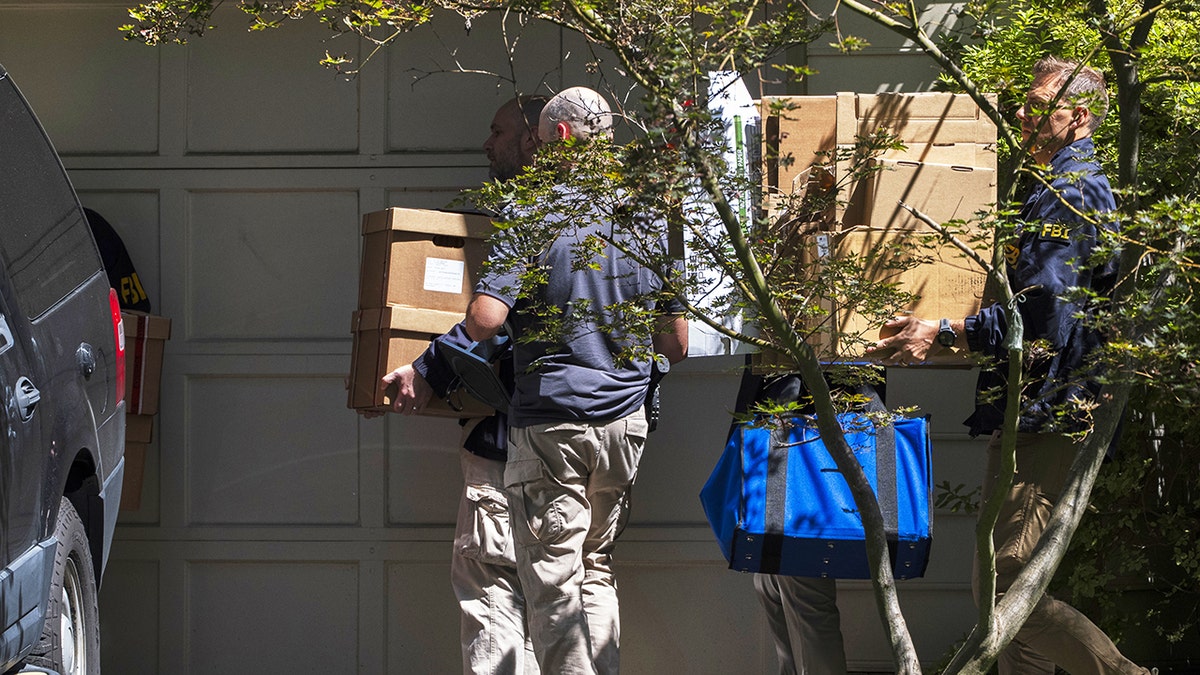Court filings list electronics, documents seized in FBI raid of John Bolton’s home
Inventory filed in Maryland federal court details laptops, phones, USB drives and folders labeled “Trump” taken during Aug. 22 search
Federal court records made public Thursday disclosed a detailed inventory of items federal agents seized from former national security adviser John Bolton’s Bethesda, Maryland, home during an Aug. 22 search that is part of a Justice Department probe into the handling of government records.
The list, filed with the U.S. District Court for the District of Maryland, shows agents took multiple computers, two iPhones, external drives, USB devices, boxes of printed materials and folders and binders with labels including “Trump I-IV” and a white binder marked "Statements and Reflections to Allied Strikes...."

The inventory identifies three desktop or laptop computers: a silver Dell XPS laptop with cables, a Dell Precision Tower model 3620 and a Dell Inspiron 2330. It lists two iPhones — described as a red iPhone with two camera lenses and a black iPhone in a black case — a Seagate external hard drive and two SanDisk 64-gigabyte USB drives. Agents also collected four boxes described as containing “printed daily activities” and a number of typed documents sorted into folders labeled “Trump I–IV.”
The searches also included Bolton’s Washington office, according to prior reporting. The Maryland filing does not charge Bolton but is part of an open investigation by the Justice Department and FBI into whether he improperly removed or retained government records after leaving the White House.
Officials previously briefed by investigators have said the review centers on allegations that Bolton took national security files from the White House and transmitted some material outside secure government systems. Media reports that cited high-ranking officials said investigators were examining whether documents were emailed to family members or stored on private servers, but the court inventory itself does not allege specific acts beyond the items seized.
Bolton, who served as national security adviser during President Donald Trump’s administration until his September 2019 departure, has been a frequent and vocal critic of Trump since leaving the White House. The disclosure of the search warrant inventory follows the Aug. 22 execution of search warrants at Bolton’s home and office and the subsequent return of the inventory to the federal court on Thursday.
Legal experts who have commented publicly on similar federal records probes said inventories of seized materials are a routine part of searches and do not by themselves determine whether criminal charges will be filed. If prosecutors conclude that classified or other protected material was improperly removed and not returned, potential federal offenses include statutes governing the unauthorized removal or retention of government records and handling of national defense information, though the inventory filing does not list any charges.
The Justice Department routinely declines to comment on open investigations. Bolton’s representatives did not immediately respond to requests for comment on the inventory. The case will proceed under the supervision of prosecutors in the U.S. Attorney’s Office for the District of Maryland and, if any charges are brought, would be adjudicated in federal court.
The inventory provides investigators and the public with an itemized account of material taken during the search but does not resolve whether any seized documents are classified or whether their removal violates federal law. Law enforcement officials will need to review the content of the seized devices, drives and papers and determine any applicable legal violations before making charging decisions.

The case adds to a series of Justice Department reviews in recent years involving former government officials and the handling of sensitive materials after leaving office. Any decision to bring charges would be made by federal prosecutors, who typically weigh the nature of the materials recovered, whether classified information is involved, and whether there was willful intent to retain or disseminate protected records.
For now, the filing leaves public the inventory of items taken during the Aug. 22 searches and underscores the scope of the materials investigators sought to review as part of the inquiry into Bolton’s removal and retention of White House records.